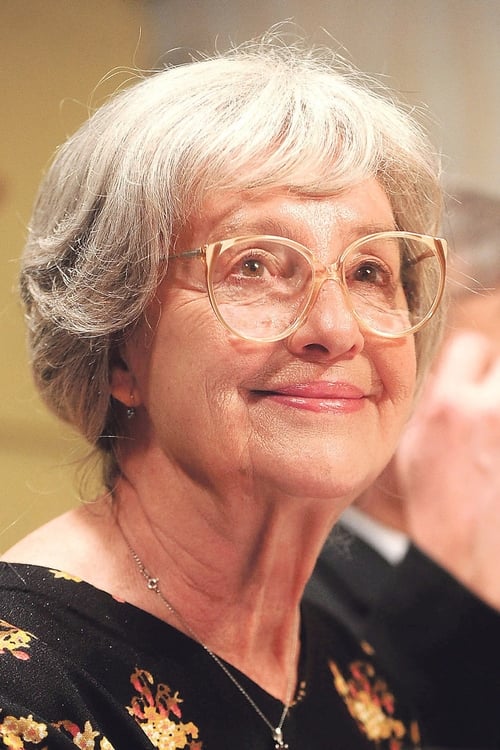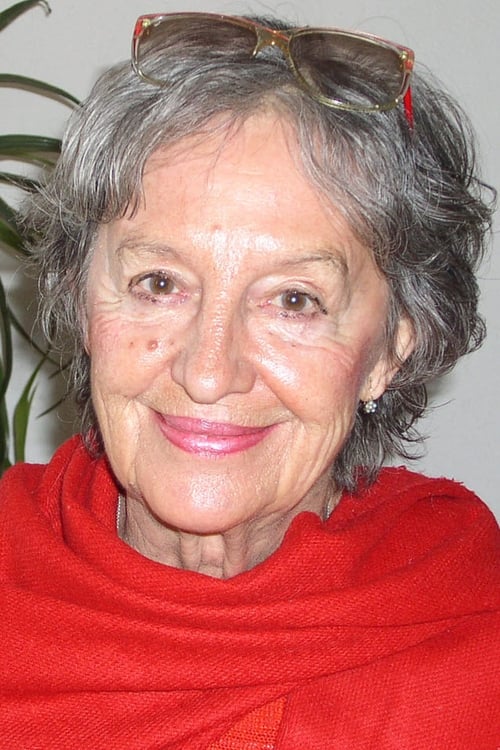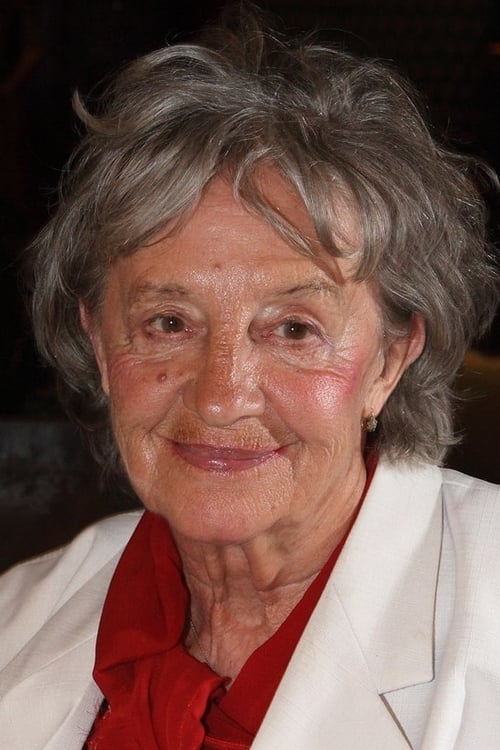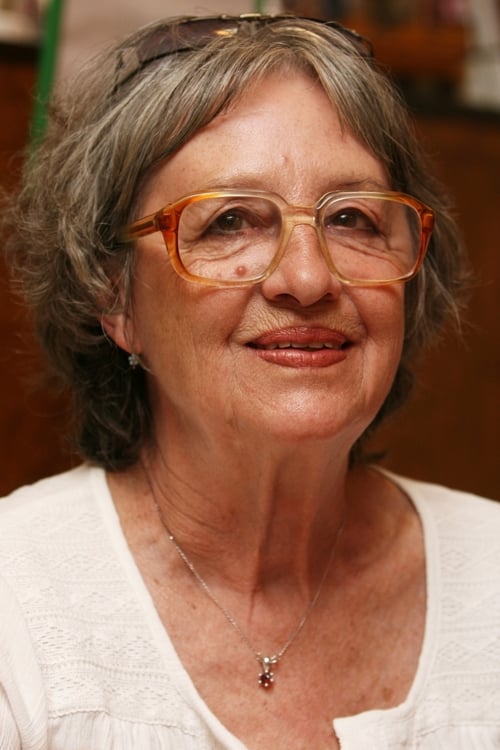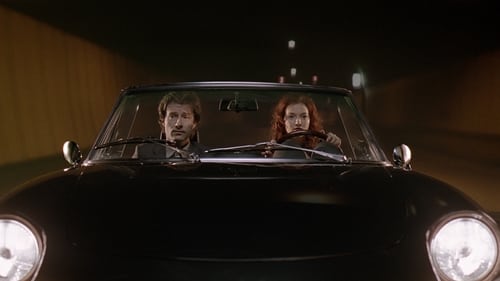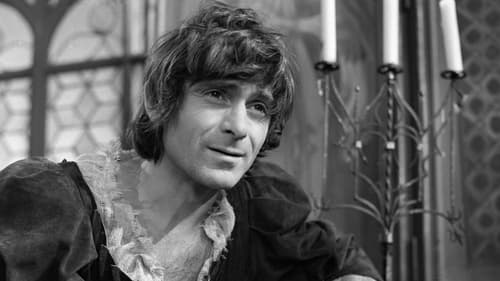Nina Divíšková
Birth : 1936-07-12, Brno, Czechoslovakia [now in Czech Republic]
Death : 2021-06-21
History
Nina Divíšková (born 12 July 1936) is a Czech actress.
She appeared in more than seventy films since 1967. She is the wife of the film director Jan Kačer. Her sister is ceramist Tamara Divíšková.
From Wikipedia, the free encyclopedia

Deep underneath the sea surface, accompanied by a fish orchestra, the voice of the ocean is telling a story of Little -- the Sea King's daughter. They left the plundered waters of their home to live among humans. They now lead a strenuous life in a somber fish shop in the heart of the harbor district where one day, Little comes to meet a handsome, confident and somewhat fresh young man -- H.H. From this moment on, the life of Little is to take a sea change.

Four swimmers - water polo players find themselves at the bottom of their existence after losing a match. So desperate that they even find themselves living at the bottom of their emptied pool. To save their "dignity" they start a questionable business "Husband to rent" fixing home items for local housewives. But as time will show the household items are not the only things they end up repairing.

žena v autě
Story follows two best friend on private investigation. They are going to their hometown to prove that Michals mother was killed by his stepmother.

babička

Hilda
The great musical comedy by F. A. Brabec V perine is the first Czech film made entirely in 3D. This stimulating comedy, in true and thorough 3D, presents a whole new computer-made world concealed in a quilt, where a large part of the film is taking place. The film V perine is a musical comedy made in the high-spirited style of Mamma Mia. In a relaxed world, where everybody used to dance rock'n'roll and the streets were full of pink Cadillacs, good and bad dreams hidden in our quilts take form. The musical adventure culminates in the magical world of dreams.

Mother
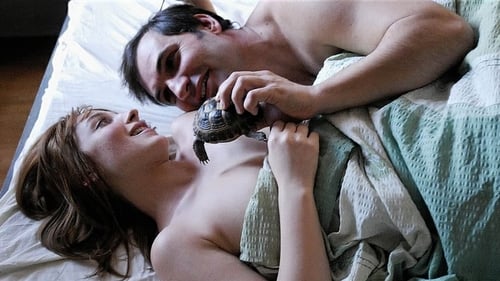
Marta
When Oskar, a self-centred TV weatherman, cheats on his wife Zuzana with their au pair, she kicks him to the curb and enlists her in-laws in the search for a new boyfriend.

Tietzová
After success of Kytice, which is based on the famous collection of poems of K.J.Erben, one of the most well-known character of classic Czech literature, Mr. Brabec went for even more famous poem Máj of K.H. Mácha, which is considered the peak of Czech romanticism
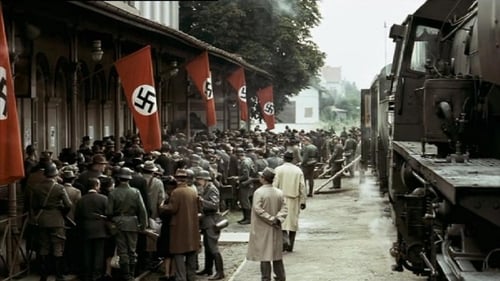
Rosa Wasserstein
A group of people are imprisoned in a rail car bound from Berlin to a concentration camp in 1945.

Luciperova bába

Mother
A man who deals with parcels at an airport cargo company finds that he likes planes more than people.

Baruška
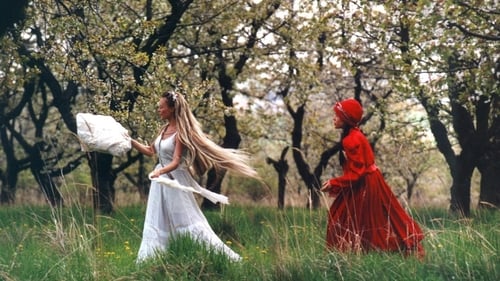
Macecha
Seven seemingly unconnected fairy tales - glued together only by folklore, mood, color and light - make up this Czech collection of visual poetry. The original piece of literature, written by Karel Jaromír Erben in 1853, contained twelve tales.

Fee
When a young princess, instead of being fully dedicated to her love, persists in running around like a tomboy and roaming the forests with her gang, and a young prince refuses to give up all his vices and mischief, an aquaphobic fairy takes their fate into her hands. The princess then falls in love with the prince, who declares eternal fidelity to her. When he however breaks this promise, the fairy turns him into a frog. With which the loyalty of the princess is being tested as well.

Elizabeth Peachum
Unlike any other opera, the so-called Beggar's Opera is not just one composition, but a lineage of adapted compositions, beginning with the original hugely successful 1728 political satire written by Englishman John Gay. Composers and writers have penned variations on it ever since. The most famous of these was A Threepenny Opera by Bertholt Brecht and Kurt Weill. Some things these compositions share in common is their setting among the poor and criminal classes, and the roguish character Macheath. This production is based on an adaptation of Gay's original by Vaclav Havel the freedom-fighter, writer and philosopher who became the first (and only) president of the united post-communist country of Czechoslovakia, and it retains many traces of its theatrical origins. Film reviewers were not too tolerant of what they called "slavish adherence" to the noted Czech writer's stage production, but theater, philosophy and history buffs may feel otherwise.

Svatava

Train Dispatcher's Wife
An allegory set in an archetypal Czech village, it tells of what happens when a sequence of mysterious events take place, including the disappearance of the stationmaster. While everything has a rational explanation, collective paranoia takes hold and everyone’s worst instincts are released. Interrogations, the abolition of rights and the search for scapegoats ultimately lead to murder

Filoména
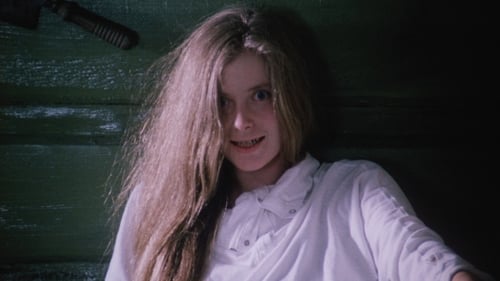
Jan's Mother
In this Czech political allegory-cum-sci-fi adventure, ten teens from different schools find themselves chosen to take part in a special skiing workshop in the mountains. On the day of the seminar, eleven young people, each bearing an invitation, arrive. A massive avalanche occurs and the ski-lodge is cut off from outside contact. Unfortunately, food supplies are limited and the three instructors strongly advise that the youths work together to make do or choose someone to leave. Time passes and soon the kids learn that their “teachers” are not what they seem to be.

Veselá
While on vacation with their bickering parents, young Eva and her little brother Johnny find in a polluted lake two strange friendly sentient octopuses made of strange material that attracts electricity. They take them as pets.

Petránková

Kinderfrau

Nurse
A story about young girl Hanka who doesn't have parents and is forced to spend most of her time in a hospital bed.

Pregnant woman
Sarcastic comedy about the Czechoslovakia of the seventies. A young gynaecologist can't figure out whether to get serious with a young nurse or to stay casual with his married lover. Things get complicated when both women don't want to play his game anymore.

sestra
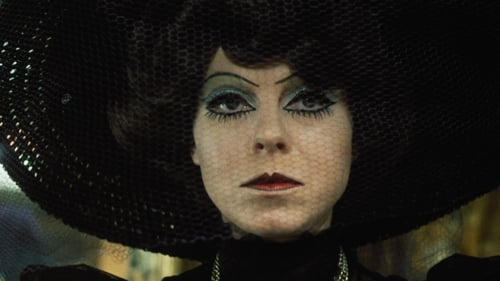
Otýlie
Jealous of her vapidly "good" sister's popularity, poisonous Viktoria doses pretty Klara's tea with a slow-acting fatal substance. As the latter grows hysterically weak, the former finds success increasingly compromised by guilt, blackmail, and the pesky need to kill others lest she be exposed.

Koralníková
In modern hospitals are carried out intensive cardiac surgery. Daily operations individually comments attendant Cajthaml ... Stylized ,, dream "scene are combined with documentary footage of actual operations, which were filmed at the University Hospital in Hradec Králové. The unique cinematic experiment theater and TV director after only a few years remind viewers.

Jarmila
Three detective stories, three different views of life and death... Collection of three horror short stories.
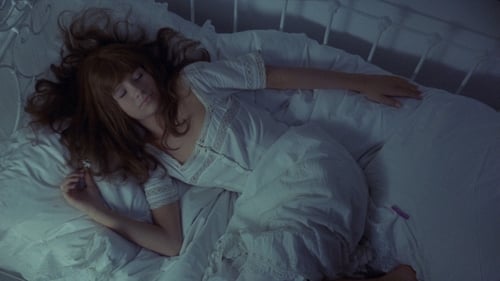
Grandmother / Elsa / Mother / Redhead (voice) (uncredited)
Valerie, a Czechoslovakian teenager living with her grandmother, is blossoming into womanhood, but that transformation proves secondary to the effects she experiences when she puts on a pair of magic earrings. Now seeing the world around her in a different light, Valerie must endure her sexual awakening while attempting to discern reality from fantasy as she encounters lecherous priest Gracian, a vampire-like stranger and otherworldly carnival folk.

Recorder (voice)
Lemuel Gulliver (Lubomír Kostelka) has had a car accident and continues his journey across the unknown countryside on foot. On the road he finds a dead rabbit dressed like a man and takes a watch from its waistcoat breast pocket. The half-ruined house that he enters reminds Lemuel of his childhood and brings up a painful memory of a dearly loved girl Markéta who was drowned years ago. Gulliver finds himself in Balnibarbi, a country where he doesn't understand the laws and habits and so continually offends against public decency. It is a day when people are ordered to keep their mouths shut and they force their visitor to follow suit. He faces harsh interrogation and finds it difficult to explain that he is not the rabbit Oscar whose watch has been found in his possession.

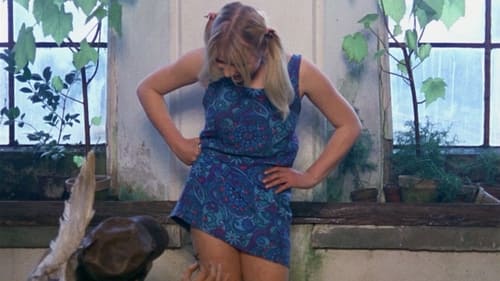
Katarína
One of the lead characters is Maria, an inn keeper; always a bride but never a wife. She meets the newcomer Pierre, who disturbs the peace of the small village and teaches the locals how to enjoy life. The film is full of fireworks of lovely colours, and a warm feeling. It is like a carousel of humour and human situations that carry us away, from the very first frame to the unexpected ending, making the viewer laugh gaily. Using a mosaic approach to the traditional narrative line, the film director creates a picture of fairly anarchic glee. “Celebration in the Botanical Garden” is a world of fantasy, full of summer fun, good humour and delight. E. Havetta´s debut was inspired by naïve art, French impressionism, and silent slap-stick as well as Western Slovakian folk traditions.

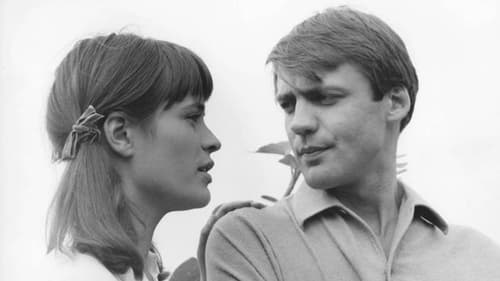
Vera
Bernhard works as a warehouse clerk in Munich. After being sentenced to probation for a physical altercation with a right-wing extremist, he could no longer continue his engineering studies. Bernhard meets Johanna. She comes from a well-to-do family; her father is a real-estate developer and her brother is in the diplomatic service. Bernhard wants to share his roots with her, so the two go to Prague, where he lived until the end of the war. But her father disapproves of the trip to the Eastern bloc. When Bernhard finds out that he owes his chance to develop new technology, which led to his career advancement, to his girlfriend’s father, he is upset …

Engineer Jan Sebek (Jan Kacer) is undergoing treatment in a mental home after his unsuccessful attempt to commit suicide. His therapist, via discussions both with the patient and with people who know him, tries to find out what made the young and seemingly satisfied man decide to end his own life. Jan's pretty wife Jana (Jana Brejchová) claims not to know about anything but she is conducting an affair with a family friend, almost publicly and with the blessing of her parents.
